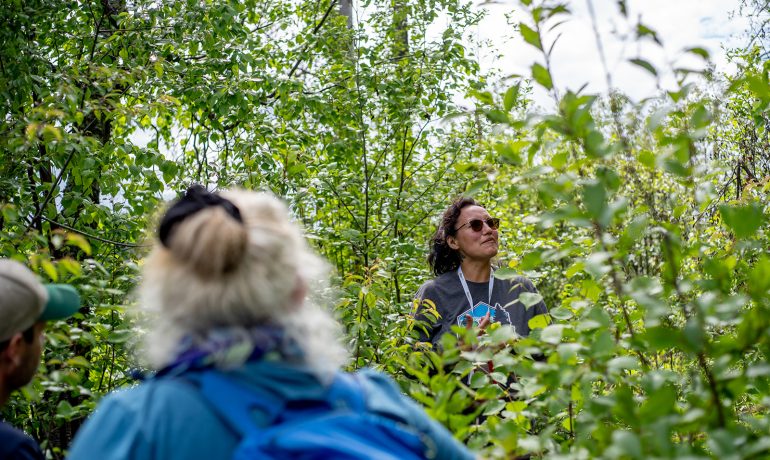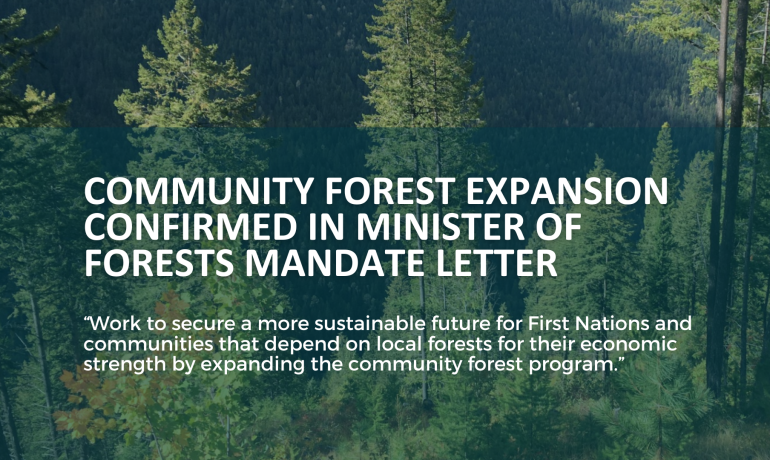The NDP government’s latest foray into regulating timber allocations and forest tenures has triggered a sharp-edged exchange of between the industry and Premier John Horgan.
The industry started it off April 12, the day after the New Democrats tabled legislation giving the forests minister a veto over transfers of tenures and cutting rights between forest companies.
Twice in the preceding week, Horgan had reached out to the industry, offering a chance to “work together” and an end to “top-down solutions” dictated from on high.
But Bill 22, the aforementioned changes to the Forests Act, was tabled without any advance consultation, leaving industry feeling blindsided.
“Given the magnitude of the potential impacts, we would have expected to have the opportunity to discuss with you before the changes were introduced, in keeping with the collaborative approach you have spoken about,” wrote West Fraser’s Ted Seraphim and Canfor’s Don Kayne, respectively the outgoing and incoming chairs of the Council of Forest Industries.
The two were also the heads of the two companies whose 2013 tenure swap prompted the NDP’s legislative intervention. But they were writing on behalf of another dozen members of COFI as well.
“Our understanding of the Bill is that it will give the minister the authority to define and apply a ‘public interest’ test that can result in conditions being placed on the transfer,” they wrote.
“The release clearly states that the government wants to ‘exert more control’ and makes no attempt to clarify what will qualify as ‘public interest.’”
The meaning is left to a combination of regulations, to come later, and ultimately a judgment call on the part of the minister and his cabinet colleagues.
Not knowing what would and would not be approved would only add to the uncertainties facing the industry at a time of declining markets in the United States and rising log costs here in B.C.
“These changes appear to deliberately undermine the value and security of tenure, which will erode investor confidence in the future benefits of making commitments to extract higher value if they can be eliminated by arbitrary policy changes,” they wrote.
It was also at odds with the need, acknowledged by government and industry alike, to rationalize sawmilling capacity, brought on by the end of beetle-kill harvest levels.
“Unilateral action works against the best interests of the province and the industry overall and undermines the relationship,” they concluded. “We would appreciate the opportunity to meet as soon as possible to seek clarification of your government’s intent for the forest sector in B.C.”
Despite the urgent tone, the premier was in no hurry to respond.
He waited a full month to write back with a vague promise that his staff would be in touch “to arrange a meeting with the COFI board soon.”
Nor was the rest of his letter any more encouraging. Instead, the premier wanted to pick over a bone or two with the companies.
Brushing aside the lack of consultations on Bill 22, he went straight to the objections: “Simply put, some industry players do not believe that the public should have a say in how forest companies transfer the right to harvest public forests.
“Other companies disagree,” he added, signalling the New Democrats were ready to take advantage of divisions within the industry.
Next he went after loose talk about the government in general and the bill in particular being responsible for mill closures.
“I understand that last week COFI suggested to the North Central Local Government Association that between eight and 10 mills will close because of policy changes that had ‘blindsided’ the industry,” complained Horgan.
“This claim made for good question period fodder,” he continued, confirming the Opposition B.C. Liberals have lately been hitting the mark on industry troubles.
“But it is simply not based in fact,” continued the letter.
“Successive governments, the forest industry and most interior communities have known for the past two decades that some rationalization of interior sawmilling capacity was inevitable in the wake of the Mountain Pine Beetle epidemic.”
Yes. The estimate of eight to 10 mill closures comes from a consulting report the industry itself commissioned a few years ago.
But Horgan’s letter came in the wake of last week’s news that Tolko industries was closing its sawmill in Quesnel and reducing operations in Kelowna.
Tolko is not a member of COFI. But its reasons are similar to those besetting an industry where timber supplies are shrinking, markets are in decline and everyone is losing money.
The NDP government has acknowledged those industry troubles. But Horgan wasn’t about to sympathize by putting Bill 22 on hold pending further consultations with the industry.
“We were aware that some companies were discussing potential rationalization and tenure trades that might otherwise have been implemented without any public input,” he advised.
“While I recognize that some might like us to ‘pause’ this legislation long enough for them to complete transactions without the minister’s approval, the action we took was consistent with my messages to the industry.”
There’d be no pause. But his government remained “committed” to the belief that “working together” is the way to making the industry more competitive and — a key goal of the NDP — getting more wood into the hands of First Nations.
“I look forward to discussing these issues with you,” Horgan closed, having defended his latest top-down solution and given up nothing.
Image:
Related Post
As Published in Canadian Forest Industries Magazine, Pulp & Paper Magazine and Canadian Biomass Magazine
Jennifer Gunter’s Op Ed, “Community Forests: Rooted in Community,
Minister of Forests Mandated to Expand BC’s Community Forest Program
In the recently released mandate letter to the Minister



